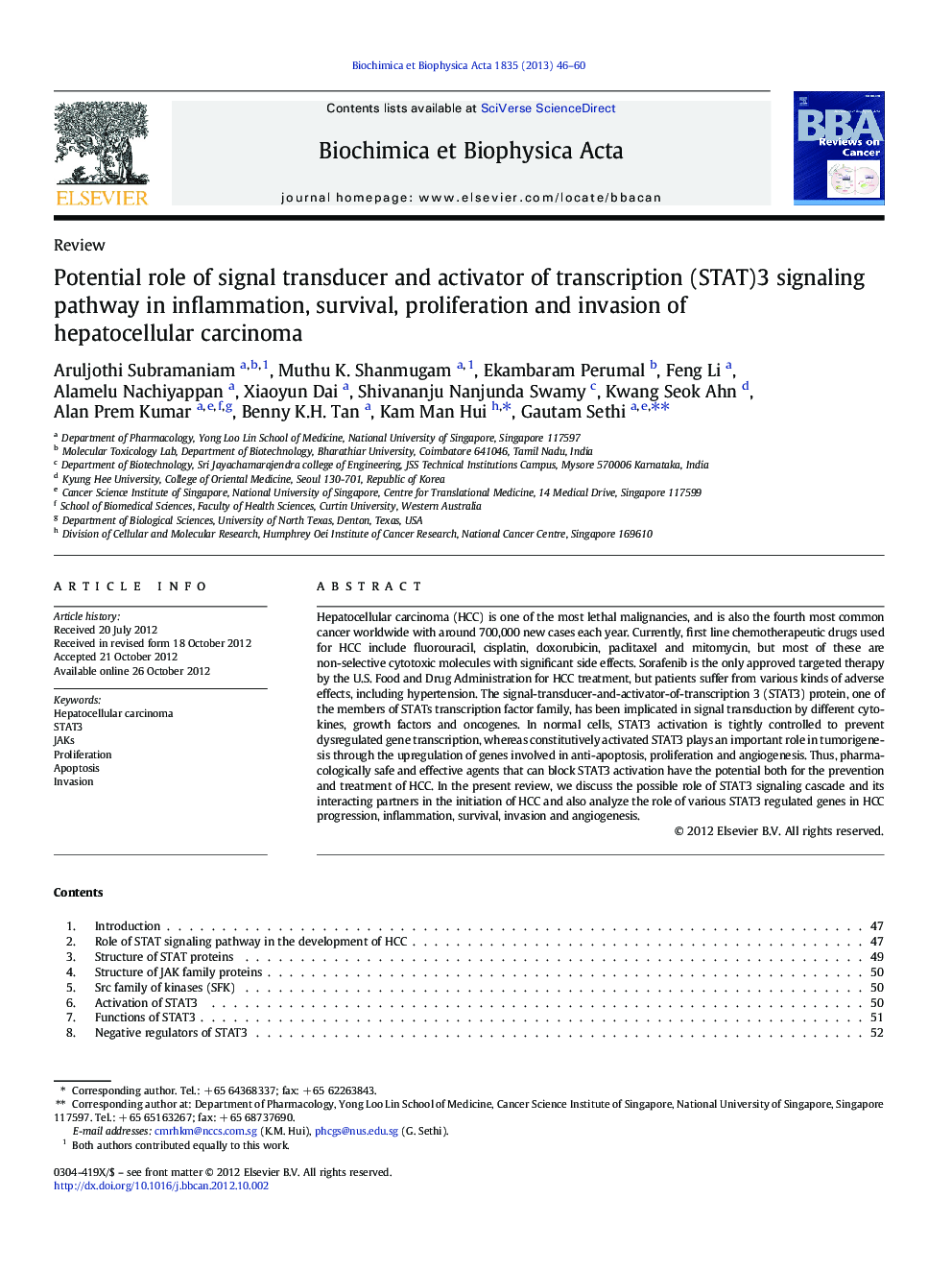| Article ID | Journal | Published Year | Pages | File Type |
|---|---|---|---|---|
| 2100920 | Biochimica et Biophysica Acta (BBA) - Reviews on Cancer | 2013 | 15 Pages |
Hepatocellular carcinoma (HCC) is one of the most lethal malignancies, and is also the fourth most common cancer worldwide with around 700,000 new cases each year. Currently, first line chemotherapeutic drugs used for HCC include fluorouracil, cisplatin, doxorubicin, paclitaxel and mitomycin, but most of these are non-selective cytotoxic molecules with significant side effects. Sorafenib is the only approved targeted therapy by the U.S. Food and Drug Administration for HCC treatment, but patients suffer from various kinds of adverse effects, including hypertension. The signal-transducer-and-activator-of-transcription 3 (STAT3) protein, one of the members of STATs transcription factor family, has been implicated in signal transduction by different cytokines, growth factors and oncogenes. In normal cells, STAT3 activation is tightly controlled to prevent dysregulated gene transcription, whereas constitutively activated STAT3 plays an important role in tumorigenesis through the upregulation of genes involved in anti-apoptosis, proliferation and angiogenesis. Thus, pharmacologically safe and effective agents that can block STAT3 activation have the potential both for the prevention and treatment of HCC. In the present review, we discuss the possible role of STAT3 signaling cascade and its interacting partners in the initiation of HCC and also analyze the role of various STAT3 regulated genes in HCC progression, inflammation, survival, invasion and angiogenesis.
